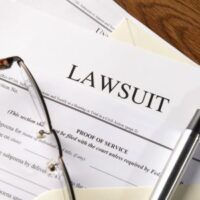Recent Supreme Court Decision Allows for Civil Lawsuits Under FNHRA

The Supreme Court recently rendered a decision on a pivotal lawsuit Health and Hospital Corporation of Marion County, Indiana, et al. v Talevski. The lawsuit allowed private litigants to bring civil claims against facilities and recover damages for violations under Federal Nursing Home Reform Act (FNHRA).
Under the FNHRA, any nursing home receiving Medicaid funding must adhere to certain standards that ensure their residents’ dignity, health, and safety. Prior to the decision, these standards could only be enforced by the government. The Supreme Court has now ruled that private plaintiffs may bring lawsuits against nursing homes for specific FNHRA violations. This decision incentivizes nursing homes to enhance their compliance processes.
The rights of nursing home patients under the FNHRA
The Talevski decision focused on two specific rights that are provided to nursing home residents. Those were (1) the right to be free from unnecessary chemical restraints, and (2) the right to only be discharged when certain conditions were met. In Talevski, the plaintiff filed a lawsuit under a rule that allows private citizens the right to file lawsuits over civil rights violations. The plaintiff sued the nursing home on the grounds that the use of psychiatric medication without familial consent and its subsequent refusal to readmit the patient both violated his civil rights under FNHRA. The nursing home argued that the plaintiff lacked the standing to bring a lawsuit under FNHRA. A circuit court agreed with the defendant and dismissed the plaintiff’s lawsuit. However, the 7th Circuit Court of Appeals reversed the decision. The Supreme Court agreed with the appellate court and ruled that the plaintiff did have standing to sue under FNHRA.
The Supreme Court ruled that the FNHRA used “rights-creating” language with an “unmistakable focus on the benefited class” when the FNHRA legislation was drafted. Nursing homes now have a duty to “protect and promote” a resident’s “right to be free from … any physical or chemical restraints … not required to treat the resident’s medical symptoms. The ruling also created preconditions for when a resident is discharged from a nursing home.
What does this mean going forward?
More lawsuits can be filed against nursing homes under the banner of civil rights legislation. Prior, only the government could file lawsuits against nursing homes for civil rights violations. Now, private litigants can sue private companies for civil rights violations under FNHRA. While the ruling only mentions two instances in which a civil rights lawsuit can be filed, the notion that the legislation creates “rights-producing language” will likely allow similar lawsuits to be filed based on other violations.
The ruling applies to all nursing homes that accept Medicaid. One of the most powerful tools the government has against a nursing home is the right to revoke its Medicaid funding. That is tantamount to shuttering the nursing home.
Talk to a Tampa, FL Nursing Home Abuse Attorney Today
Florin Gray represents the interests of Tampa, FL residents injured by negligent nursing homes. Call our Tampa personal injury lawyers today to schedule a free consultation, and we can begin discussing your case immediately.
Source:
medcitynews.com/2023/09/nursing-homes-beware-supreme-court-greenlights-civil-lawsuits-to-enforce-fnhra/